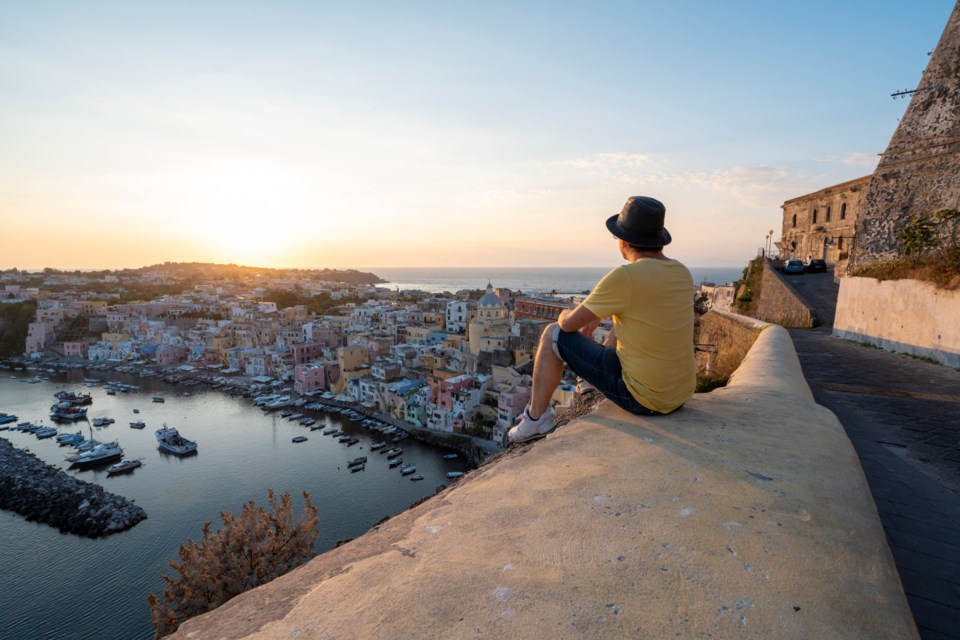There’s been a lot of ink spilled in the pandemic—including in these here pages—about what the future of tourism is going to look like.
We already know there’s no going back to business as usual, with tourism hotspots such as Whistler, Venice, Valencia and others calling for more sustainable forms of travel well before COVID-19 forced the industry into a standstill.
Much of the talk about tourism’s future has centred on the concept of “mindful travel,” and tour companies from Australia to India are now marketing travel packages with unhurried itineraries meant to promote a deeper connection to nature and longer stays at a destination.
These are undeniable positives in the ongoing shift towards a more equitable and conscientious global tourism landscape. I just hope tourism can avoid the pitfalls of the multi-billion-dollar wellness industry that has co-opted the very concept of mindfulness from collectivist Eastern religious traditions to better fit the West’s individualistic obsession with self-actualization, telling customers (mostly women) that the only path to get there is by looking younger, thinner, better; that the only way to achieve inner peace is through pricy retreats and private gurus.
Travel, I would argue, is often viewed in a similar way: as a self-fulfilment tool for those privileged enough to afford it. How many blog posts, guidebooks and travelogues have been penned extoling the personal value of travel without really acknowledging the toll it places on the people who service that need?
I’m reminded of that famous Mark Twain quote you still see scrawled on Instagram posts about travel being “fatal to prejudice, bigotry, and narrow-mindedness.” From the popular travelogue The Innocents Abroad, which recounted Twain’s 1867 “Great Pleasure Excursion” through Europe and the Holy Land, the book gave a rare window into cultures that most Americans of the time could only conjure in their imaginations. It’s clear, even through the satirical lens Twain excelled at, that he had vastly different opinions of certain cultures versus others. He calls the French Emperor the “representative of the highest modern civilization, progress, and refinement,” while, later in the same passage, describes the Ottoman Emperor as the “representative of a people by nature and training filthy, brutish, ignorant, unprogressive, [and] superstitious.” Twain holds up his inflated sense of cultural superiority as proof of an expanded worldview, something I’d argue still infects the Western perspective on travel in subtle ways.
That’s not to say there isn’t inherent value in travel. Twain wasn’t wrong to say that exposure to cultures different can come with incredible benefits, but if we want to create a more mindful form of tourism, then we have to, unlike Twain, acknowledge our position near the top of the travel hierarchy and be honest about the transactional nature of tourism. It also doesn’t mean you have to be saddled with shame every time you go on vacation.
It’s something University of Washington (UW) professor Dr. Anu Taranath tackles in her book, Beyond Guilt Trips: Mindful Travel in an Unequal World, which was informed by her many human-rights-themed trips with UW students to India, Mexico and elsewhere.
“Mindful travel in an unequal world isn’t about getting on a plane to go somewhere—it’s about paying attention, and noticing positionality in relation to each other,” she said in 2019 interview with UW News. “It’s about understanding that we are all living in a much longer history that has put us in different positions of advantage and disadvantage, and equipped us with very few tools to talk about it.”
It’s these tough conversations, about power, privilege and moral responsibility that should be happening at home in our own communities well before setting down in the next vacation destination.
So do your homework. Try to understand a place, its culture, customs, history and power dynamics, and where you sit within it. Read sources that go beyond the Lonely Planet guidebooks, from grassroots leaders and community groups working on the ground, from voices that have been historically maligned in the mainstream. Take the time to understand the Indigenous rights, traditional place names and customs of the land you’ll be visiting, and if necessary, seek permission to come onto the territory.
And when it comes time to shell out your hard-earned dollars on vacation, make sure you understand exactly where that money is going and who you’re supporting. You can even take it a step further and pay a land tax (although I had trouble finding a Canadian equivalent, the Indigenous women-led Sogorea Te’ Land Trust out of the Bay Area is a great example of this) or donate to groups like the Black Trans Travel Fund that are dedicated to fostering a safer, more accessible tourism landscape for all.
After all, travel can’t truly be considered mindful until it moves beyond the individual and takes into account all sides of the tourism equation.




